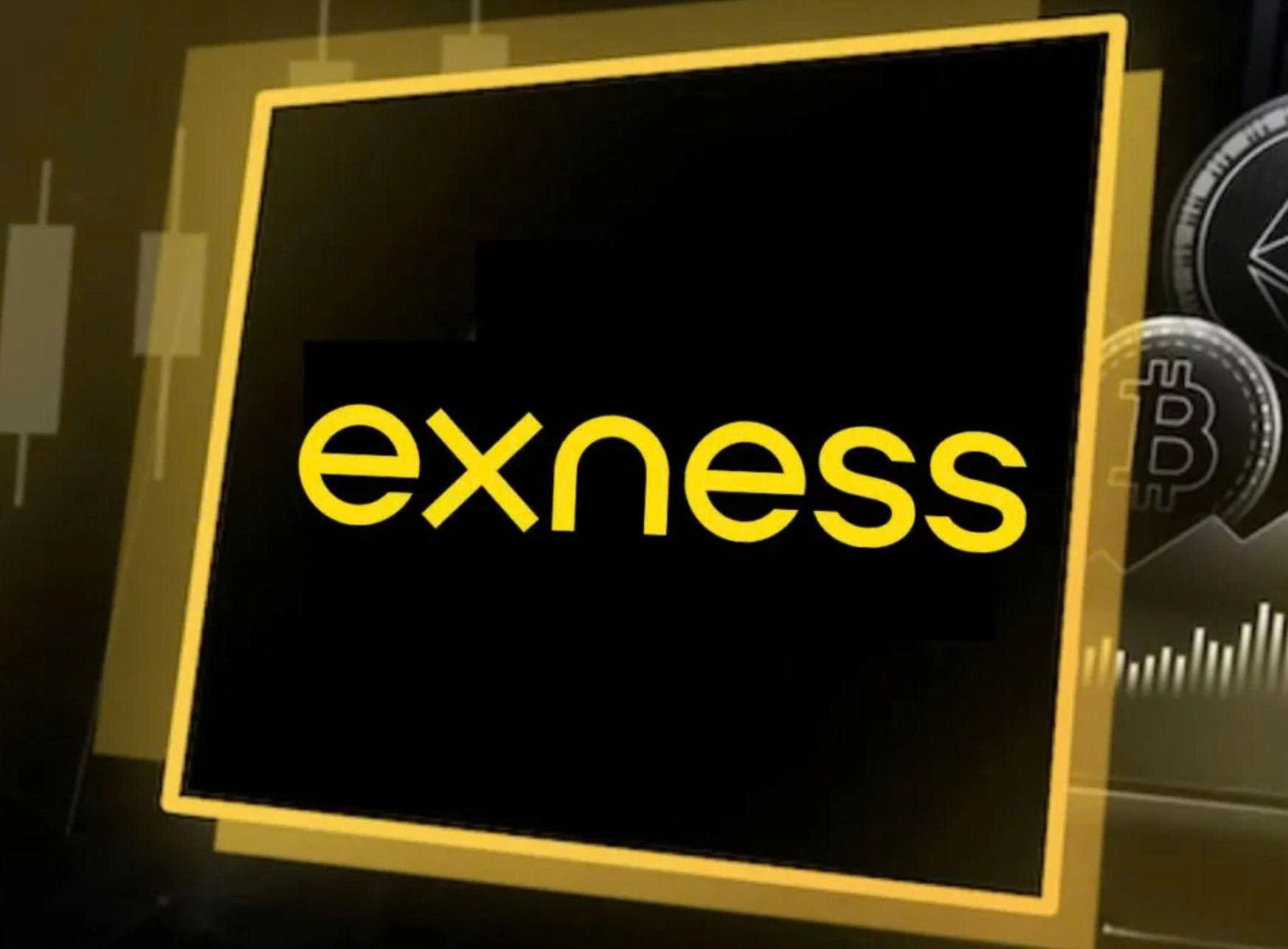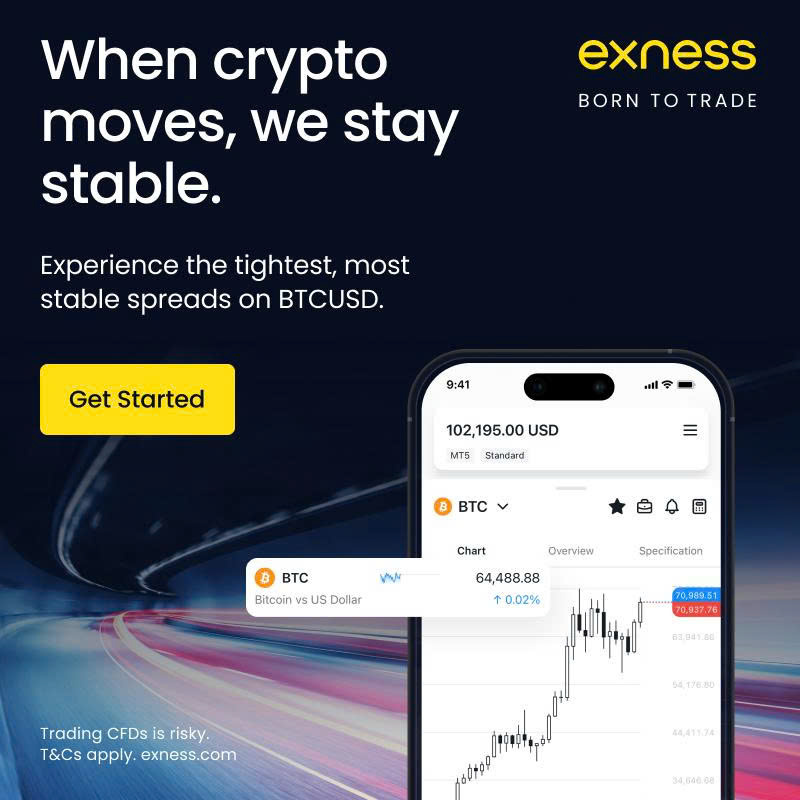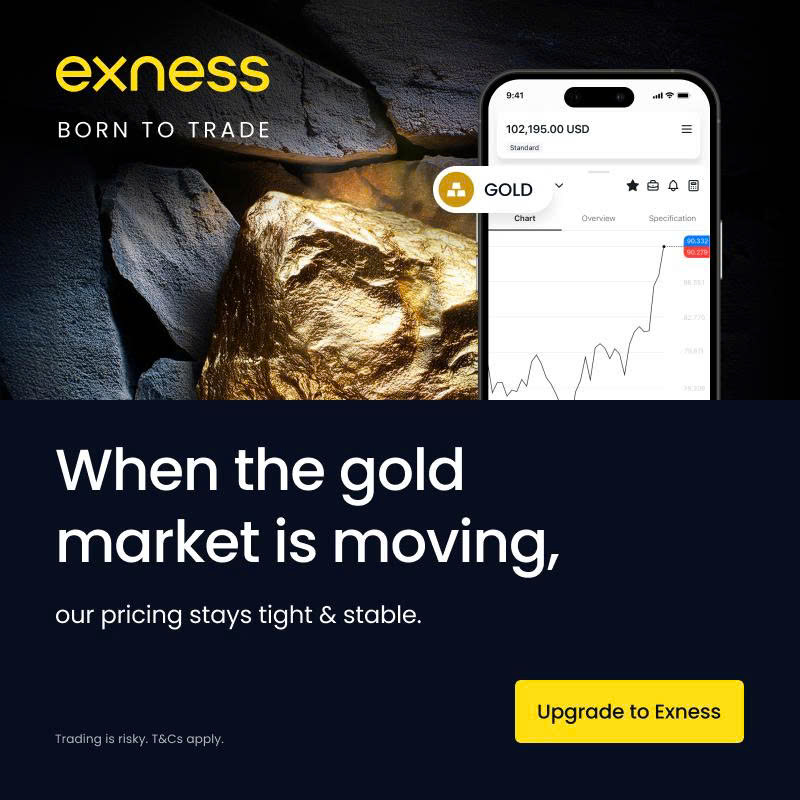
9 minute read
Exness or Deriv Comparison: Which Forex Broker is Better in 2025?
from Exness or Deriv
Choosing the right forex broker can make or break your trading journey. With countless platforms vying for attention, two names consistently stand out: Exness or Deriv. Both brokers have earned solid reputations in the online trading world, but they cater to different needs and preferences. If you're wondering which platform is better suited for your trading goals in 2025, this in-depth Exness or Deriv comparison will break down their features, fees, platforms, regulations, and more to help you make an informed decision.

✅ Join Exness now! Open An Account or Visit Brokers 👈
Whether you're a beginner exploring forex trading or an experienced trader seeking advanced tools, this guide will compare Exness or Deriv across key criteria to determine which broker comes out on top. Let’s dive in!
Overview of Exness or Deriv
Before comparing the specifics, let’s understand the background of each broker.
Exness: A Trusted Global Leader
Founded in 2008 and headquartered in Cyprus, Exness is one of the largest retail forex brokers globally, with a trading volume exceeding $3 trillion annually. Known for its transparency, tight spreads, and high leverage options, Exness caters to traders of all levels. Regulated by top-tier authorities like the Financial Conduct Authority (FCA) and Cyprus Securities and Exchange Commission (CySEC), Exness emphasizes client safety and fast execution. Its diverse range of instruments includes forex, cryptocurrencies, stocks, metals, and commodities.
Deriv: A Versatile Multi-Asset Platform
Originally launched in 1999 as Binary.com, Deriv rebranded in 2020 to expand its offerings beyond binary options. Based in Malta, Deriv is known for its innovative platforms and unique trading products, such as synthetic indices. Regulated by authorities like the Malta Financial Services Authority (MFSA) and the Vanuatu Financial Services Commission (VFSC), Deriv provides access to forex, CFDs, cryptocurrencies, and binary options, appealing to traders seeking diverse and creative trading opportunities.
Both brokers have distinct strengths, but which one is better for you? Let’s compare them across critical factors.
1. Regulation and Security
The safety of your funds is paramount when choosing a broker. Regulation provides insight into a broker’s credibility and client protection measures.
Exness: Top-Tier Regulation
Exness operates under stringent regulations from multiple authorities, including:
· CySEC (Cyprus): Ensures compliance with EU standards, including segregated client funds and compensation schemes (up to €20,000).
· FCA (UK): A Tier-1 regulator with strict oversight, offering up to £85,000 in compensation.
· FSA (Seychelles): Supports Exness’s global operations with additional flexibility.
Exness’s multi-layered regulatory framework ensures transparency and security, making it a trusted choice for traders worldwide. The broker also offers negative balance protection, ensuring clients don’t lose more than their deposited funds.
Deriv: Solid but Less Prestigious Oversight
Deriv is regulated by:
· MFSA (Malta): A respected Tier-1 regulator enforcing high standards.
· VFSC (Vanuatu), BVI FSC (British Virgin Islands), and LFSA (Labuan): These offshore regulators are less stringent, which may concern some traders.
Deriv segregates client funds and uses secure payment systems, but its regulatory portfolio isn’t as robust as Exness’s due to its offshore licenses. If safety is your top priority, Exness has a slight edge with its FCA and CySEC licenses.
Verdict: Exness wins for regulation due to its stronger Tier-1 oversight and negative balance protection.

✅ Join Exness now! Open An Account or Visit Brokers 👈
2. Account Types and Accessibility
The right account type can significantly impact your trading experience. Let’s explore what Exness or Deriv offer.
Exness: Flexible Account Options
Exness provides a variety of account types to suit different trading styles:
· Standard Account: Commission-free with spreads from 0.3 pips, ideal for beginners.
· Standard Cent Account: Uses cent lots for low-risk trading, perfect for novices or strategy testing.
· Pro Account: Offers tighter spreads and faster execution for experienced traders.
· Zero Account: Features spreads as low as 0.0 pips with a small commission, catering to high-volume traders.
Exness supports multiple base currencies, reducing conversion fees, and has a low minimum deposit starting at $1 for some accounts (though premium accounts like Zero require $500).
Deriv: Tailored for Diverse Strategies
Deriv offers account types designed for different trading preferences:
· Derived Account: Focuses on synthetic indices and binary options.
· Smart Account: Geared toward CFD trading with flexible leverage.
· Financial Account: Suitable for forex and other traditional instruments.
Deriv’s accounts allow seamless switching, enabling traders to adapt strategies without creating new profiles. The minimum deposit is notably low, starting at $5, making it highly accessible for beginners.
Verdict: Exness offers more account variety, especially for forex-focused traders, while Deriv’s low $5 minimum deposit makes it more accessible for beginners.
3. Trading Platforms and Tools
A broker’s platform and tools are critical for executing trades and analyzing markets.
Exness: Industry-Standard Platforms
Exness supports popular platforms like:
· MetaTrader 4 (MT4) and MetaTrader 5 (MT5): Known for advanced charting, technical indicators, and algorithmic trading support.
· Exness WebTerminal: A browser-based platform for convenient access.
· Mobile Apps: Robust apps for trading on the go.
Exness also offers social trading, allowing users to copy successful traders, and provides VPS hosting for low-latency trading. The Exness Academy delivers comprehensive educational resources, including webinars and tutorials, tailored to all experience levels.
Deriv: Innovative Proprietary Platforms
Deriv stands out with its proprietary platforms:
· DTrader: A user-friendly platform for forex, CFDs, and binary options.
· DMT5: An advanced version of MetaTrader 5, customized for Deriv’s offerings.
· DBot: An automated trading bot for algorithmic strategies.
· Deriv WebTrader: A browser-based platform with real-time charts and technical tools.
Deriv’s platforms are intuitive and support unique products like synthetic indices. However, its educational resources are less extensive than Exness’s, which may be a drawback for beginners.
Verdict: Exness excels for its industry-standard platforms and educational support, while Deriv shines for its innovative proprietary tools and automated trading options.
4. Trading Fees and Spreads
Trading costs directly affect profitability. Let’s compare the fee structures of Exness or Deriv.
Exness: Competitive and Transparent
Exness is known for its low trading costs:
· Spreads: Start at 0.3 pips for Standard accounts and 0.0 pips for Zero accounts.
· Commissions: No commissions on Standard accounts; Zero and Pro accounts have small commissions.
· No Inactivity Fees: Ideal for occasional traders.
· Swap-Free Accounts: Available for traders adhering to Sharia laws.
Exness’s transparent pricing and tight spreads make it cost-effective, especially for high-volume traders.
Deriv: Ultra-Low Spreads
Deriv also offers competitive costs:
· Spreads: Start at 0.5–0.8 pips, often tighter than industry averages.
· Commissions: No commission fees across most accounts.
· Inactivity Fees: A $25 fee applies after 12 months of inactivity, which may deter low-volume traders.
· Swap-Free Accounts: Not explicitly offered, limiting options for some traders.
Deriv’s spreads are highly competitive, but the inactivity fee is a drawback for infrequent traders.
Verdict: Exness has a slight edge due to its no-inactivity-fee policy and swap-free accounts, though Deriv’s tighter spreads appeal to cost-conscious traders.
5. Trading Instruments
The range of tradable assets is crucial for diversifying portfolios.
Exness: Extensive Asset Coverage
Exness offers over 120 instruments, including:
· Forex: Over 100 pairs, including major, minor, and exotic currencies.
· Cryptocurrencies: Seven major cryptos, including Bitcoin and Ethereum.
· Stocks, Indices, Metals, and Energies: A broad selection for diversified trading.
Exness’s copy trading feature allows users to replicate successful traders’ strategies, adding value for beginners.
Deriv: Unique and Diverse Offerings
Deriv provides a mix of traditional and innovative instruments:
· Forex: Over 50 currency pairs.
· Synthetic Indices: Unique volatility-based indices unavailable on most platforms.
· Cryptocurrencies, Commodities, and Options: A diverse range for speculative trading.
Deriv’s synthetic indices and binary options cater to traders seeking non-traditional markets.
Verdict: Exness leads for its extensive forex and traditional asset coverage, while Deriv is ideal for traders interested in synthetic indices and binary options.
6. Deposits and Withdrawals
Ease of funding and withdrawing is a key consideration for traders.
Exness: Fast and Flexible
Exness supports a wide range of payment methods, including:
· Bank transfers, debit/credit cards, and e-wallets like Skrill and Neteller.
· Cryptocurrency deposits for select accounts.
· Minimum Deposit: As low as $1 for Standard accounts.
· Withdrawal Speed: Instant to near-instant for verified traders, with no manual approval required.
Exness’s flexibility and fast withdrawals make it highly convenient.
Deriv: Low Entry and Crypto Support
Deriv offers:
· Bank transfers, Visa, Mastercard, e-wallets, and Bitcoin deposits.
· Minimum Deposit: $5, highly accessible for beginners.
· Withdrawal Speed: Typically 1–2 days, though crypto withdrawals may take longer due to internal controls.
Deriv’s low entry point is a major advantage, but Exness’s faster withdrawals give it an edge.
Verdict: Exness wins for faster withdrawals and broader currency support, while Deriv is more accessible for low-budget traders.
7. Customer Support and Education
Responsive support and educational resources are vital, especially for beginners.
Exness: Comprehensive Support
Exness provides:
· 24/7 Support: Via live chat, email, and phone in 14 languages.
· Exness Academy: Offers webinars, tutorials, and market analysis tailored to all levels.
· Market Insights: Economic calendars and trading signals for informed decisions.
Exness’s focus on education makes it ideal for novices and intermediate traders.
Deriv: Reliable but Limited Resources
Deriv offers:
· 24/7 Support: Via live chat, WhatsApp, and email.
· Educational Content: Basic articles and demo accounts, but less comprehensive than Exness.
Deriv’s support is reliable, but its educational offerings lag behind Exness.
Verdict: Exness excels with its robust educational resources and multilingual support.
8. Unique Features
Both brokers offer unique features that set them apart.
Exness: Social Trading and High Leverage
· Social Trading: Copy successful traders to boost profitability.
· High Leverage: Up to 1:2000, ideal for experienced traders (with risk warnings).
· Negative Balance Protection: Ensures traders don’t lose more than their deposits.
Deriv: Synthetic Indices and Automation
· Synthetic Indices: Unique volatility-based instruments for 24/7 trading.
· Automated Trading Bots (DBot): Simplifies algorithmic trading for beginners.
· Social Trading: Strong focus on community-driven trading.
Verdict: Exness is better for traditional traders, while Deriv appeals to those seeking innovative products like synthetic indices.
Which Broker is Better in 2025?
The choice between Exness or Deriv depends on your trading goals and preferences:
· Choose Exness if: You prioritize top-tier regulation, low trading fees, extensive forex pairs, and robust educational resources. Exness is ideal for forex-focused traders and those seeking transparency and fast execution.
· Choose Deriv if: You’re interested in synthetic indices, binary options, or automated trading bots. Deriv’s low minimum deposit and innovative platforms make it suitable for beginners and traders exploring non-traditional markets.
For most traders, Exness takes the lead due to its stronger regulatory framework, faster withdrawals, and comprehensive educational support. However, Deriv is a strong contender for those prioritizing low-cost trading and unique instruments like synthetic indices.
Final Thoughts
Both Exness or Deriv are reputable brokers with distinct strengths. Exness excels in regulation, account variety, and educational resources, making it a versatile choice for most traders. Deriv stands out for its innovative platforms and accessibility, appealing to those seeking creative trading opportunities. Ultimately, the best broker depends on your trading style, risk tolerance, and preferences.
Before deciding, test both platforms using their demo accounts to explore their features firsthand. Whichever you choose, always practice sound risk management and stay informed about market conditions. Happy trading in 2025!
✅ Join Exness now! Open An Account or Visit Brokers 👈
Read more:

